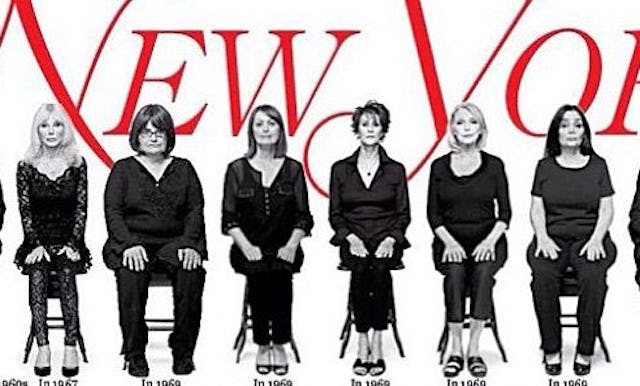Why the 'New York' Magazine Cover Matters

But then? I felt rage. I am a survivor of sexual abuse and rape, and I have a running list of people who didn’t believe me either. Why? I want to know why you refused to believe me. Did I really not have enough value in your eyes for you to stop and think for one second that what I was telling you was the truth?
Why is it when a young woman, or any woman for that matter, tells someone that she was raped, you ask, “Really? Are you sure? I don’t believe he could ever do that. He’s such a nice boy/man.”
That, for the record, is never the appropriate answer. Ever. You should ask how you can help her, and for God’s sake, believe what she is telling you. I promise you, it is more uncomfortable for her than it is for you, because the truth is uncomfortable.
Would you ask a car crash victim, “Are you sure?” Would you say behind the car crash victim’s back, “I don’t really think she was in a car accident,” or, “It’s not as bad as she’s making it out to be—she should just move past it”?
And what about a robbery victim? Would you say, “She misunderstood being held up at gunpoint”?
Because we are talking about a crime. And not a crime of gray area. A crime where one person takes something from another without the victim’s permission.
I remember the first time I found out that a distant family member didn’t believe that my abuse was “that bad” or that maybe I “remembered it incorrectly” and that maybe I “should still have a relationship” with the abuser. I was sitting in a urologist’s office, waiting to have tests done to see how bad my scar tissue was from the abuse. Right, “not that bad.”
The more you choose to believe the rapist over the survivor, the more you are essentially saying that the rapist has more value, and because of that, it is okay that he raped her. You are giving other rapists passive permission to continue to rape, because we as a society continue to value the rapist over the victim and refuse to do anything collectively about it. When are we going to stop? Now? After 46 women came forward and a comedian joked about Cosby, we are finally going to believe them? Does this seem absurd to you? Something should have been done a very long time ago to support these women.
What is also starkly moving about the New York cover is the empty chair. It is both haunting and sad. The more you look at it, the more obsessed you become with the chair. It holds other women’s stories, the ones not yet told, the ones that have yet to happen but are inevitable. You are looking at the past, present and future, all in one empty space. It is uncomfortable for you, because the women are there. These are the stories of the women you know but who have yet to tell you, because you refused to believe others before them. The stories of the little girls who will be abused because you will refuse to believe them when they tell you something happened. The stories of the people you know.
The older and more defiant I get, the more reflective I also, surprisingly, become. It dawned on me, finally, that people don’t want to believe that someone who pretends to portray their values, or whom they share their lives with, or who lives in their neighborhood or sits beside them at church, could possibly do something heinous, because it then holds a mirror to their own seemingly perfect lives. And in reality, most people want to be the book judged by their false, controllable cover, and want to judge others by theirs, because it’s less uncomfortable this way.
Society can do better than this. New York magazine just proved it.
This article was originally published on